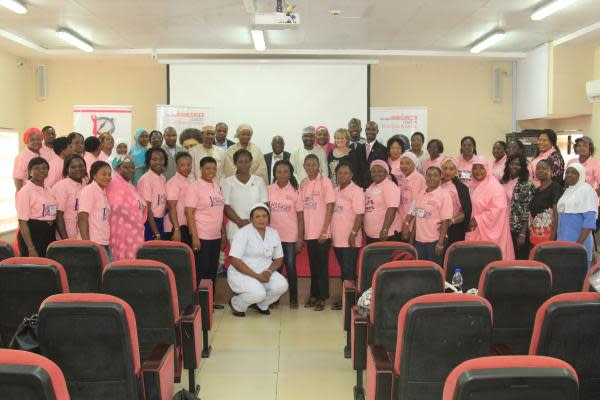The Current State Of The Breast Cancer Treatment Space

Puma Biotechnology Inc (NASDAQ: PBYI) popped 88 percent Monday on news that its neratinib candidate, an early-stage breast cancer treatment for human epidermal growth factor receptor-2 (HER2) positive mutations, was advancing in the U.S. Food and Drug Administration investigatory process.
For breast cancer patients not yet reliant upon chemotherapy, the particular mechanism of neratinib ━ an irreversible tyrosine kinase inhibitor that blocks cell signals through epidermal growth factor receptors ━ is cause for hope. But so are the 1,050 other drugs in development.
The particular treatment space is competitive, with around 333 first-in-class programs moving at rapid pace.
The Breast Cancer Niche
Just last week, Merus NV (NASDAQ: MRUS) announced positive results for its Phase 1/2 study of MCLA-128 in hormone receptor (HR)-positive, HER2-positive metastatic patients.
Pfizer Inc. (NYSE: PFE) also reported positive findings on its talazoparib candidate believed to shrink tumors in post-chemotherapy patients with BRCA1 and BRCA2 genes. More than 50 percent of hereditary breast cancers are attributed to such mutations.
A week before that, the FDA approved Novartis AG (ADR) (NYSE: NVS)’s combination pack of ribociclib and letrozole tablets for HR-positive, HER2-negative advanced breast cancer in postmenopausal patients.
In April, TESARO Inc (NASDAQ: TSRO)’s niraparib was approved for ovarian cancer and continues trials for breast cancer
In March, the FDA granted regular approval of both Pfizer’s palbociclib and Novartis’ ribociclib to treat HR-positive, HER2-negative advanced cancer in postmenopausal women.
Shortly prior, Roche Holding Ltd. (ADR) (OTC: RHHBY) boasted success in a patient study for the HER2-positive-targeting Perjeta, which, in combination with chemotherapy and Roche’s Herceptin, coincided with lower rates of tumor recurrence and mortality in post-surgery patients.
Roche has not yet released its full study data. Because its Herceptin is largely successful on its own, curing more than 80 percent of women with early-stage breast cancer, some suggest that Perjeta would need to raise the figure to 92 percent in order to secure profitable usage. The drug already gained FDA approval in 2012.
Also of note, Canaccord Genuity analyst John Newman noted Monday that Radius Health Inc (NASDAQ: RDUS)’s RAD-1901 treatment appears promising.
A number of other players maintain ongoing trials for candidates at various clinical stages.
Related Links:
FDA Links Breast Implants To A Rare Form Of Cancer
Allergan Continues Educational Strategy Amid FDA’s Report Linking Breast Implants To Rare Cancer
_______ Image Credit: "42 nurses, cancer patients and social workers trained as Patient Navigators by Project PINK BLUE," By Kabusa16 - Own work, CC BY-SA 4.0, via Wikimedia Commons
See more from Benzinga
Alphabet Makes The Case For Its AI Products At Google I/O Event
Victor Anthony Gives The Lowdown On Pandora, Snap, Twitter And Amazon
© 2017 Benzinga.com. Benzinga does not provide investment advice. All rights reserved.
